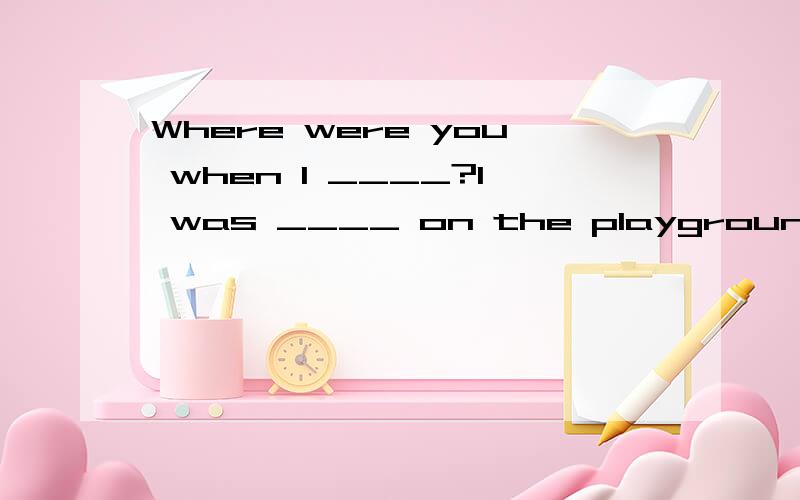Where were you when I ____?I was ____ on the playground.Where were you when I ____?I was ____ on the playground.A arrived at; at play B reached; at play C got; playing D arrived in ; playing
来源:学生作业帮助网 编辑:作业帮 时间:2024/04/29 16:27:07

Where were you when I ____?I was ____ on the playground.Where were you when I ____?I was ____ on the playground.A arrived at; at play B reached; at play C got; playing D arrived in ; playing
Where were you when I ____?I was ____ on the playground.
Where were you when I ____?I was ____ on the playground.
A arrived at; at play B reached; at play C got; playing D arrived in ; playing
Where were you when I ____?I was ____ on the playground.Where were you when I ____?I was ____ on the playground.A arrived at; at play B reached; at play C got; playing D arrived in ; playing
D
选C 因为 arrive in/at /reach/ get to 都表示“到达”,后面要加表示地点的名词。因此从第一个空看只能选c。第二个空考查的是过去进行时。
D
选D
表示“到达”的用法
arrive at 小地点
arrive in 大地点
get to sp(someplace 某地的意思)
reach 直接加地点 因为reach是及物动词 不需要加宾语
翻译:我到的时候你在哪里啊?
我那时正在操场上玩
根据语境, 表示特定的一个时间点 即“那时”正在进行的动作 所以用过...
全部展开
选D
表示“到达”的用法
arrive at 小地点
arrive in 大地点
get to sp(someplace 某地的意思)
reach 直接加地点 因为reach是及物动词 不需要加宾语
翻译:我到的时候你在哪里啊?
我那时正在操场上玩
根据语境, 表示特定的一个时间点 即“那时”正在进行的动作 所以用过去进行时 排除A和B
又因为必须get to sp .C 选项缺少介词to
综上 选D
收起